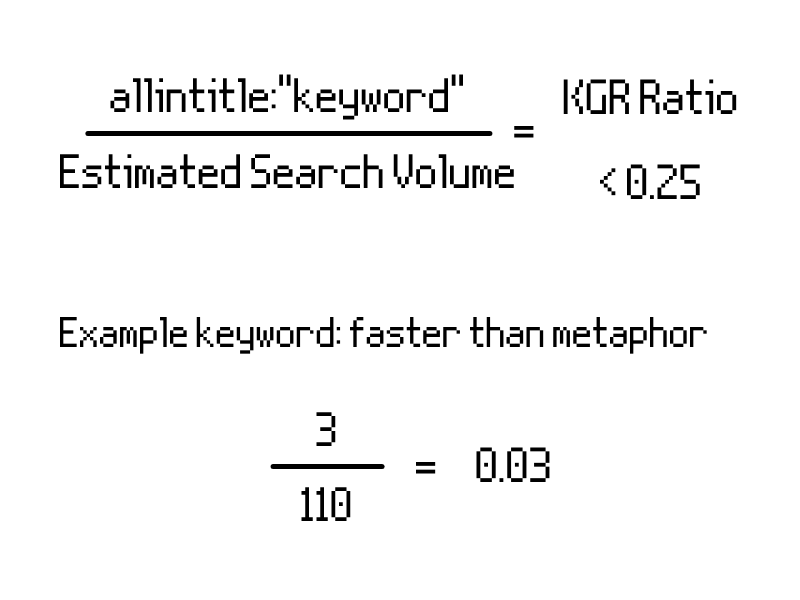3 Simple Steps To Find Keywords That Rank Forums
Do you want to find long-tail keywords and topic ideas that can help drive organic traffic to your site?
Look for keywords that rank forums. This shows that the search intent of the topic hasn't been covered yet and so there's a great chance it isn't a competitive keyword.
In short, if a forum or other user generated site is ranking high, there's a good chance you can too.
Quick update/edit: Ever since the March 2023 Google Core Update, forums and UGC sites - particularly Reddit have flipped the script. As of October 2024, Reddit now gets closer to 700M estimated search traffic per month (from the 121M figure below). And this has largely been at the expense of small to medium sized niche site rankings.
Having said that, if your site is for a legitimate business with a product or service attached - you may still find the tips below valuable. (For instance, this agency site you're on, still averages 15k+ page views per month from just 39 pages indexed;)
So, in this article, we'll break down 3 easy steps you can use to find these golden opportunities.

Easy to rank keywords
If you ever Google something and see a forum ranking in a 1-3 keyword position, it's a good sign that it's an untapped opportunity.
This may seem counter-intuitive.
You may think that forums like Quora, Reddit, and even niche-specific forums have strong domain authority. They do, and this isn't to say it's always easy to outrank them.
But for a regular search query, a forum ranking high on page 1 tells you there's a shortage of highly effective content that matches the search intent.
Using forums for keyword research isn't a new idea. SEOs have been using this tactic for years.
There's even a well-regarded keyword tool called Keyword Chef by SEO Ben Adler for this. It even mentions on the homepage that the tool can help speed up the process to find these awesome keywords. And, thus, these juicy keyword ideas continue to dry up each day.
You may already be hard pressed to find any lucrative affiliate keywords left in your niche with this strategy. But there may still be some out there, so you'll want to get started ASAP.
Step 1: Find relevant forums
The first step is to compile a list of relevant forums in your niche. If you've been in it for a while, you probably know a few already.
To find more, you can simply Google: your niche forums.
For instance - if you Google 'digital marketing forums', you'll find this roundup post at number one. The top results will give you some good sites to use in the next step.
You can also search: "target keyword" + "forum".
To keep track of everything, it's good to note the sites down into a Google sheet or excel file.
Step 2: Find the keywords they're ranking for
For this, we recommend using a keyword research tool. There are a lot of options out there for you to use.
If you use Ahrefs though here’s what you can also do:
Take a domain from the spreadsheet you created earlier and enter it into Site Explorer.
Please note that for Reddit, you don't want to put the root domain 'reddit.com' into the search bar and then try to filter down. The site is way too big, with too many pages, so it's not even possible.
Instead, you'll want to input the exact URL of a relevant subreddit. For example, the URL for the Blogging subreddit.
Once you've entered the forum URL, go to the left hand-side and click 'top pages'.
You may get a lot of results, so you'll want to add some filters.
We look for keyword ideas where a forum is ranking in keyword position 1-3. It's not helpful to go after 2nd or 3rd page keywords.
You'll also likely want to exclude 'forum' and 'forums' from the results that appear. Also, the name of the forum - especially for reddit pages.
Note down any helpful keyword and its search volumes and repeat this process for each of the forums you found.
With this process, you'll likely find long-tail question keywords and even lucrative affiliate keywords.
This latter target is becoming increasingly difficult, though. The more likely use of these steps will be to find great question keywords for info pages.
Step 3: Take it a step further
If you do this, you'll have a long list of keyword ideas. The next step is to prioritize them.
You can do this based on search volume, but searches per month aren't always the best factor.
It's important to consider what stage your site is in. High-volume keywords are typically more competitive keywords.
If you're a smaller site, it's best to work your way up and not go after broad keyword phrases like digital marketing in Vietnam.
You'll probably find better results early on building up your authority and targeting smaller, more specific topics. For instance, for a business like ours, an article explaining why businesses should outsource their copywriting.
Also, be aware that the search volumes shown on keyword research tools aren't always accurate.
They're estimates and usually very low estimates at that. They pair the volume data from Google Keyword Planner with clickstream data, but the estimates of each tool are usually different.
The key thing to remember is that if people discuss a topic on forum posts, there is interest in the topic.
And this is where your new blog post can be there to help them.
In theory, they're all good choices as people will use a search engine to look for answers to these questions again.
But in reality, you'll always want to consider what your target audience is likely to search for. And what the search intent of each keyword seems to be and gauge if it will change.
A seed keyword of 1 to 2 words and broad, ambiguous keywords, even with high search volumes, may not be a top priority.
Not only could it be too competitive, but it may be for the unaware stage of the buyer's journey. And even if a forum is ranking for them, it won't automatically mean it's worth your time to create a
piece of content
for it.
Keyword Golden Ratio (KGR)
To filter your keywords and prioritize them based on what you can rank fastest, you can use the keyword golden ratio (KGR).
This is a tried-and-true formula for choosing easy-win long-tail keywords created by SEO wizard Doug Cunnington.
The formula is quite simple. You divide the number of 'allintitle:keyword' results by the estimated search volume (if it's 250 or below). And you end with a ratio. What you're looking for is the keyword golden ratio of 0.25.

Note that 'allintitle' searches for the 'keyword in title' of all the pages indexed in Google.
If a relevant keyword matches the KGR criteria, it means that a keyword is being overlooked by competitors.
If you visit the KGR link above, you can gain access to a great template by Doug. As you input keywords, it’ll start looking like this. Minus the red ;)
To the right of the keyword, you’ll input the allintitle result. To the right of that is the search volume result. And once you input those 2 numbers, the sheet will spit out the KGR of each keyword.
This process will help you filter your results and prioritize opportunities with decent search volume. As you get going, you might rank on page 1 within days of publishing.
Note to check the page 1 of the keyword not only to see what the search intent is but also what the authority of the other ranking sites are like. Sometimes a word is KGR compliant, but still very competitive. Usually not but it's good to check just in case.
We find that combining these tactics for keyword research can be a great way to target exact keywords that can bring relevant traffic to a site.
In Conclusion
Whether you're a small business or affiliate site, we hope these steps can help you find some nice keywords to get the ball rolling.
To recap, all you need to do is:
- Find relevant forums in your niche.
- Look for which keywords they're ranking on page 1 for - especially in positions 1-3.
- Prioritize what to pursue first based on the KGR of each keyword.
If you give this a try, let us know how it goes. We'd love to hear your thoughts and results.
As always, if you'd like any support with your content marketing needs, reach out to us and we'll be happy to help!
All the best.
Blog
Let’s grow your online visibility together!
Join our newsletter for actionable tips and checklists!
Contact Us
You can also find us here:








